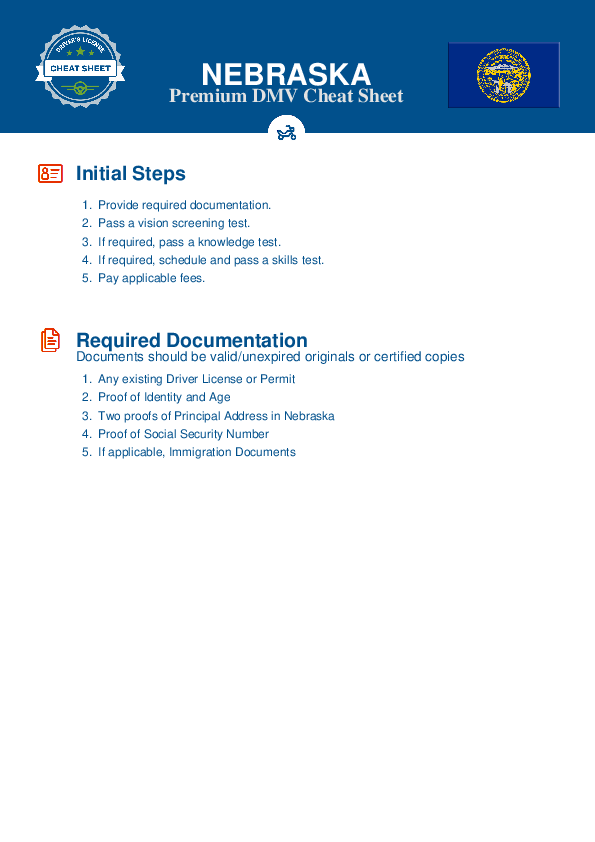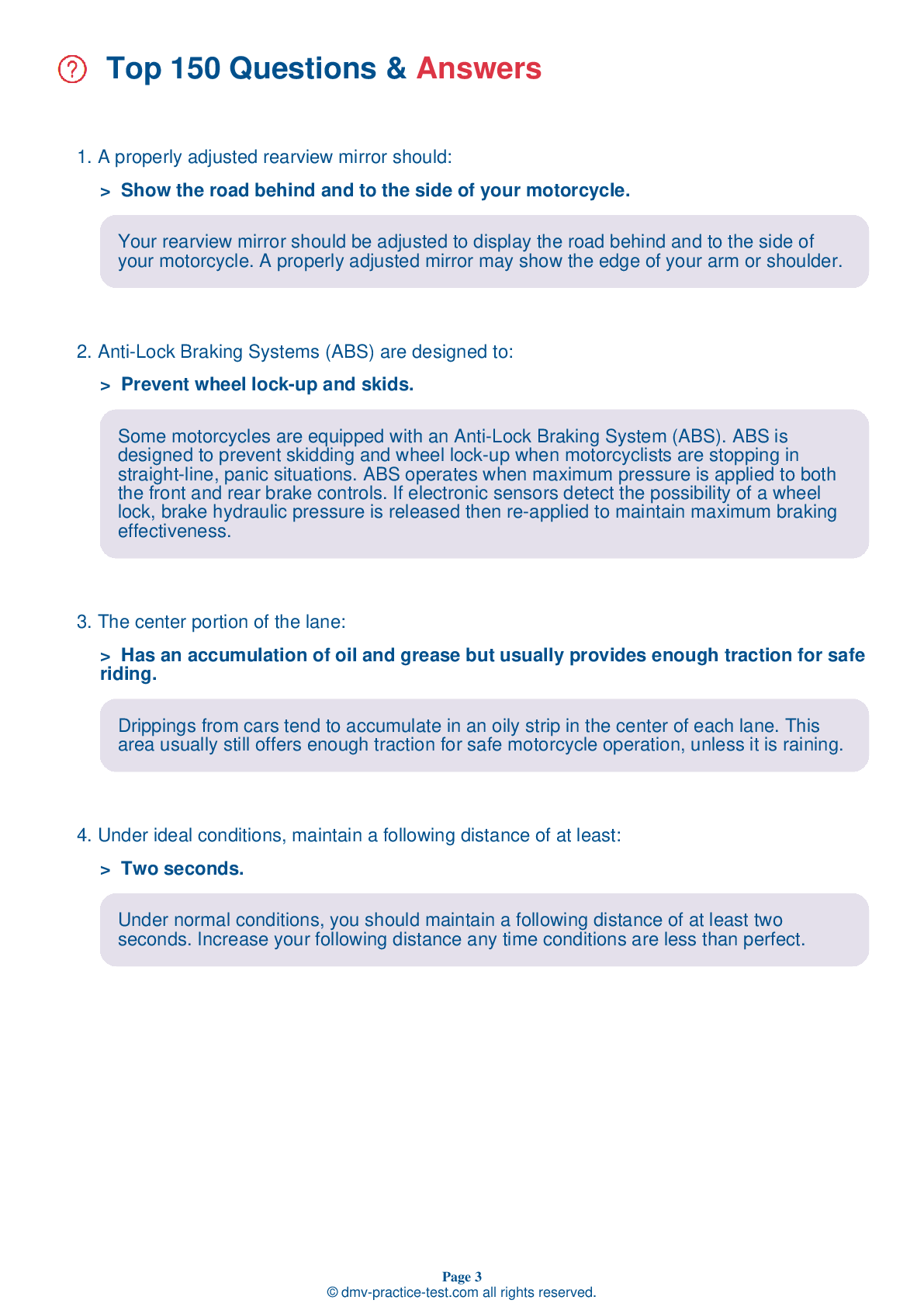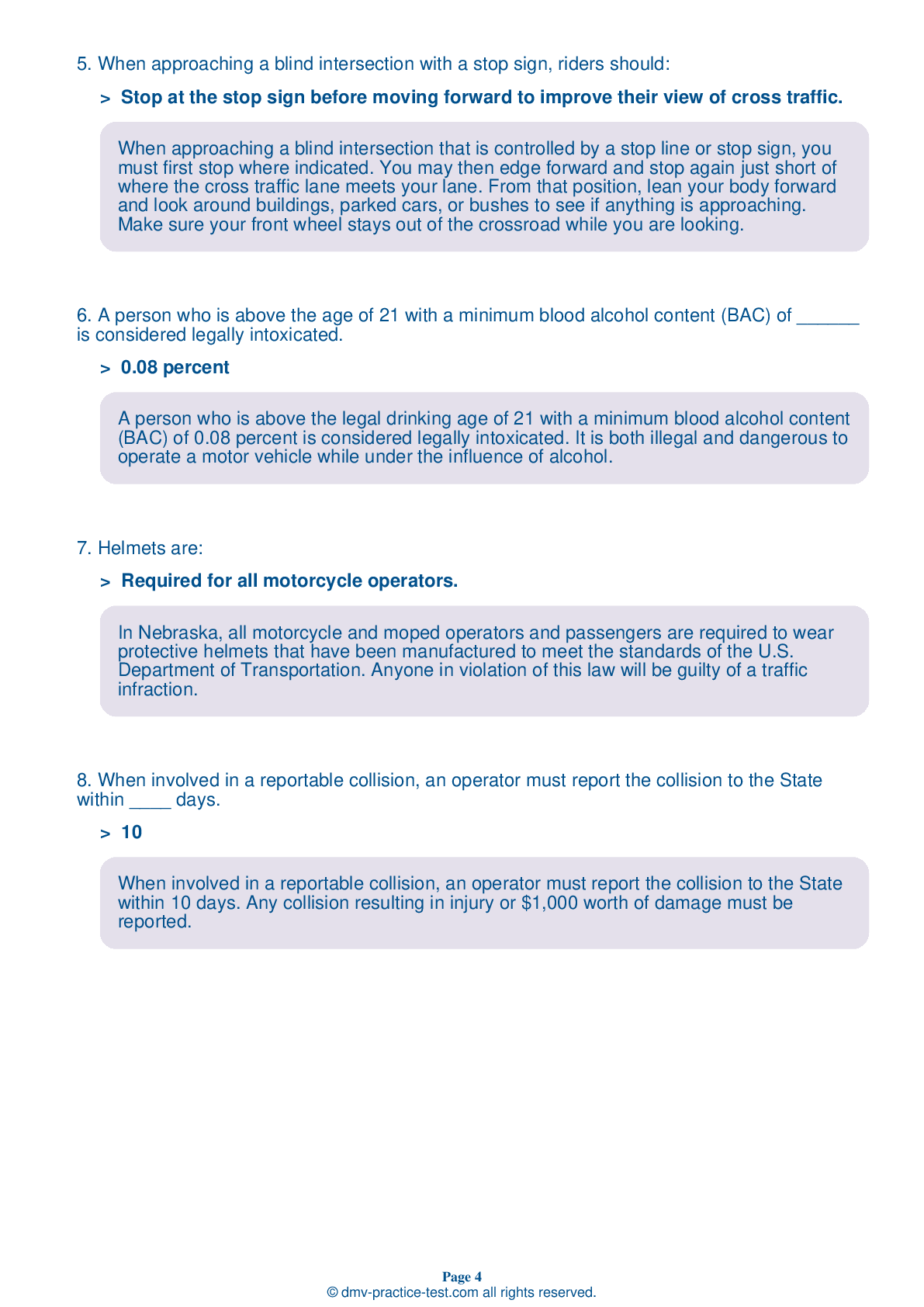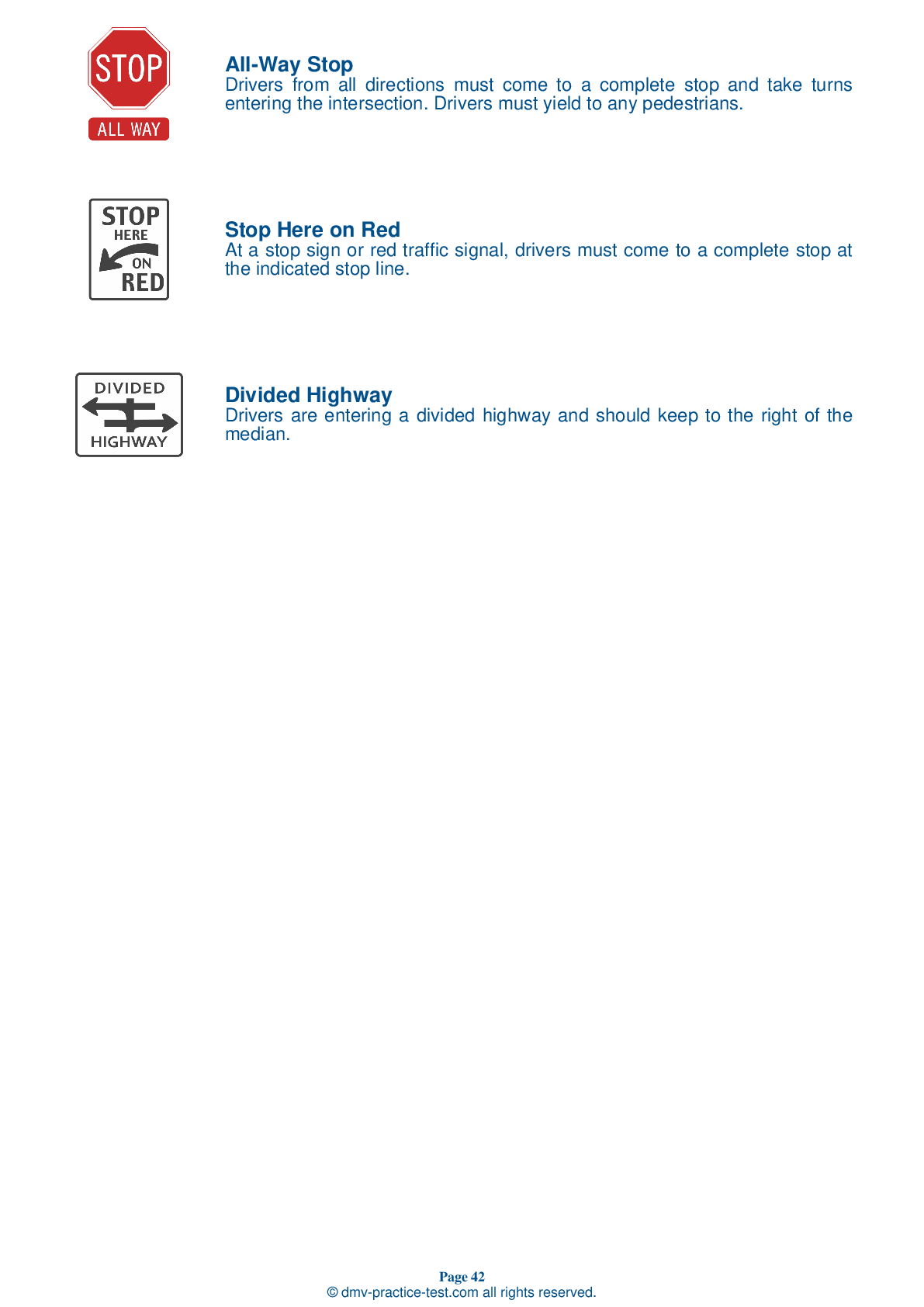Motorcycle Test | License NE 2026 | FREE Online Practice! #12
Take this FREE motorcycle test (license in NE 2026) to check your knowledge of the road rules. To improve your results, download a motorcycle handbook online, study theory, and practice for free on our website. Still worried about how to get a motorcycle license in Nebraska in 2026? Check our website for more sample tests, train as much as possible, and boost your grades!
1 . What are the four steps to safely completing a turn?
To safely complete a turn, a rider should slow, look, roll, and press. The rider should reduce their speed when approaching the turn and look through the turn to where they want to go. They should roll on the throttle through the turn to stabilize suspension and press the handle grip to lean the bike in the direction of the turn.
2 . Most crashes happen:
Most motorcycle crashes happen on trips of less than five miles and at speeds slower than 30 mph. It is important to use safe riding practices regardless of how far and fast you are traveling.
3 . When riding a motorcycle, you should:
For your protection, you should always wear a long-sleeved jacket made of appropriate material when riding. This is true even in warm weather because wearing a jacket is important to help prevent dehydration. You should also always wear long pants, and tuck in the laces of your footwear to prevent them from catching on the motorcycle.
4 . When you are being passed by another vehicle, which part of the lane should you ride in?
When being passed, it is generally safest to ride in the center portion of your lane. Riding on the side nearest the passing vehicle increases the risk of colliding with them. Riding on the side farthest from the passing vehicle is also dangerous, as it could tempt the driver to re-enter your lane before it is safe to do so.
5 . When the road is slippery, maintain a following distance of at least:
An expanded cushion of space is needed if your motorcycle will take longer than normal to stop. If the pavement is slippery, if you cannot see through the vehicle ahead of you, or if traffic is heavy and another driver may try to squeeze in front of you, open up to a minimum three-second following distance.
6 . When upshifting, the first thing you should do is:
When upshifting, you should first roll off the throttle as you squeeze the clutch lever. Next, lift the shift lever firmly as far as it will go. Smoothly ease out the clutch and roll on the throttle as you complete the gear shift.
See the exact questions that will be on the 2026 Nebraska DMV exam.
99.2% of people who use the cheat sheet pass the FIRST TIME
Jeneen was tired of paying $5/gallon. She got herself a scooter that required the motorcycle license. She studyed the motorcycle test cheat sheet and passed her test the next day!
Christopher tells us how he knew nothing prior to obtaining the motorcycle study guide, and he only got one question wrong because he clicked on the wrong answer by mistake.



